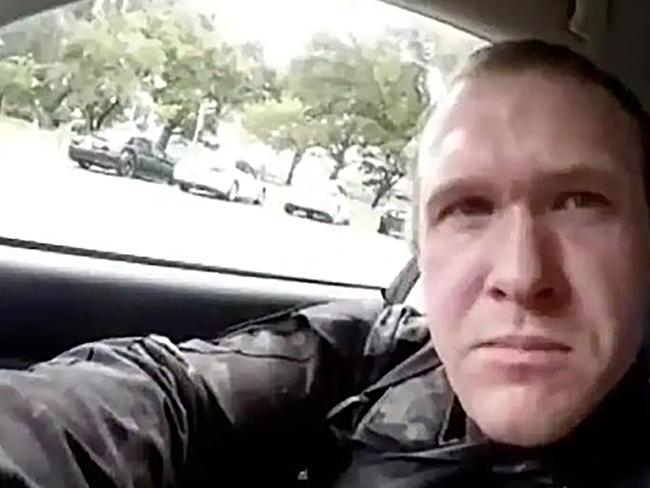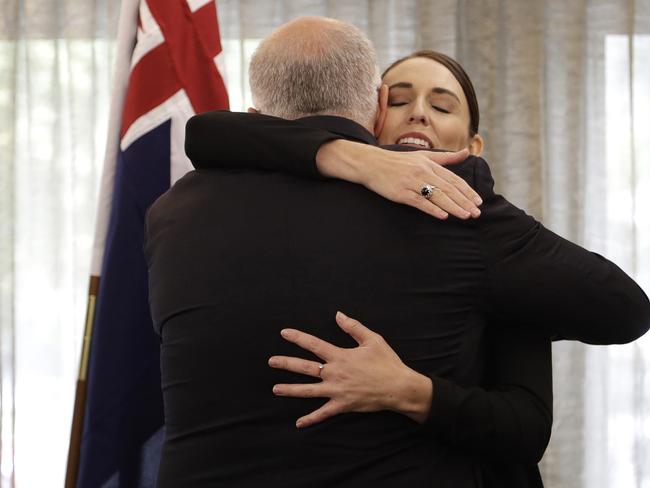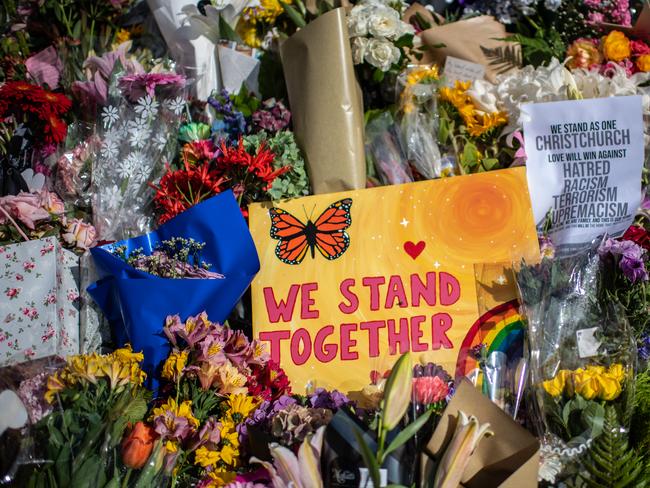Terror website ban: How Australia plans to block terrorism and extreme violence online
Horrific video of the Christchurch massacre forced internet providers Telstra, Optus, TPG, Vodafone and Foxtel to take action. SEE THE BANNED LIST
Behind the Scenes
Don't miss out on the headlines from Behind the Scenes. Followed categories will be added to My News.
The footage was harrowing.
Streamed live to one of the world’s biggest social networks, it showed a man senselessly murdering 51 unarmed bystanders with an automatic weapon, and attempting to kill another 40 people inside places of worship.
Video from Christchurch massacre, filmed from the gunman’s perspective like a nightmarish game, remained on Facebook for more than an hour, and rapidly spread to other social media accounts, platforms, and internet forums.
More than 1.5 million copies of the video filled Facebook in the 24 hours following the attack and Australian authorities scrambled to stamp it out.
Amid this chaos, Australia’s internet providers were seeking new ways to help.
“In the immediate days after the event, internet service providers were talking to the Australian Communications Media Authority and Australian Federal Police, saying ‘what do we do here?’,” Communications Alliance chief executive John Stanton recounts.
“In the absence of any direction, everybody agreed blocking the content was the right thing to do.”
Australia’s five major internet providers — Telstra, Optus, TPG, Vodafone and Foxtel — unanimously agreed to block 45 websites hosting the horrific footage.

The ban applied to entire websites, rather than just one or two web pages, and affected access from more than 50 related internet providers, including Belong, iiNet, and iPrimus.
Telstra networks group executive Nikos Katinakis said the company recognised “this may cause inconvenience for some legitimate users of these sites but these are extraordinary circumstances and they require an extraordinary response”.
Few criticised the emergency actions but a substantial problem remained: the action of internet providers was not legally protected.
Plus, New Australian laws made it illegal to “recklessly” allow access to “abhorrent, violent content,” threatening large fines and up to three years’ jail for executives.
In short, the internet providers could be sued if they did block websites; jailed if they did not.
“They were caught in a peculiar trap,” Stanton says. “It was not the most comfortable spot to be in.”
With this in mind, the Taskforce to Combat Terrorist and Extreme Violent Material Online recommended a new framework for blocking the material in Australia, and this week the Federal Government approved it.
The framework will establish crisis management protocols, appoint the eSafety Commissioner to independently assess which websites should be blocked, and will establish a 24/7 Crisis co-ordination Centre to monitor for extremely violent online content and alert government agencies.
Prime Minster Scott Morrison, speaking from the G7 conference in France, said the Christchurch attack showed “how digital platforms and websites (could) be exploited to host extreme violent and terrorist content,” and the new scheme would both protect Australians from it and “deny terrorists the opportunity to glorify their crimes”.

Federal Communications Minister Paul Fletcher says the new system will first deal with the online fallout of the Christchurch attack and provide structure for internet providers, but it will then be used to ensure Australian authorities can react quickly to any future incidents.
“It will provide important legal support for the actions that the internet service providers voluntarily and entirely correctly and appropriately took in relation to the Christchurch attack video,” Fletcher says.
“There will also be this protocol developed by the eSafety Commissioner setting out how, should a similar episode occur in the future, industry would deal with it.
“We hope that no such episode ever happens again, but we need to be prepared just in case it does.”
Stanton says internet providers and other stakeholders are currently working with Commissioner Julie Inman Grant to develop protocols for website assessments, removing blocks, and monitoring for violent material.
“The next step is the 24/7 Crisis Centre the PM talked about and the longer term blocking scheme,” he says.
But Inman Grant told News Corp that her office was also focused on ensuring that the new protocol did not result in “overblocking content on the internet,” and was used only in extreme circumstances.
“These powers will need to meet an extremely high threshold and be applied on a case-by-case basis,” she says.

MORE NEWS
Morrison pulls plug on terror streaming
Tinder terror and more horror online dating crimes
Jungle warfare: ADF troops’ new flying squad
“A measured but rapid response in crisis events is aimed at stemming the virality of abhorrent material designed to further incite terrorist activity.”
Swinburne University social media major director Dr Belinda Barnet says she cautiously applauds the move, particularly after the publication of three murderous manifests on public websites this year.
“It’s not doing anything about Facebook, the elephant in the room, but the fact is that some sites have become central to murders and mass shootings in the past few years,” she says.
“You’re taking away some of the impact of that. Some (terrorists) have a desire for publicity and to get their ‘heroism’ out. If you can stop that happening, that’s great.”
But Barnet warns that blocking extreme content will not stop every Australian from viewing it, nor will it prevent perpetrators moving their rantings to the Dark Web.
It is also “crucial,” she says, that regulators tell the public what websites are being blocked, commit to banning only extreme content, and that social networks be encouraged to strongly and quickly moderate violent material.
“Facebook does need to step up to the plate in terms of creating the right algorithms to detect dangerous content and effectively use moderation,” she says.
“But at least they’re saying they want to combat this kind of content.”
WEBSITES CURRENTLY BANNED IN AUSTRALIA FOR HOSTING EXTREMELY VIOLENT OR TERRORIST CONTENT
4chan.org
4channel.org
8ch.net
anonfile.com
ar15.com
archive.fo
archive.is
bestgore.com
Betsysbiblechat.com
bishopikediblog.com
bitchute.com
blazingcatfur.ca
cdn-03.minfil.com
d.tube
dailystormer.name
darkweb.tokyo
deathaddict.co
documentcloud.org
encyclopediadramatica.rs
endchan.xyz
filedropper.com
files-uploader.xzy.pw
finanzaonline.com
goldismoney2.com
hollywoodlanews.com
ilfoglio.it
kaotic.com
kiwifarms.net
liveleak.com
livestreamfails.com
lookism.net
lulz.com
mixtape.moe
ogrishforums.com
rainews.it
ren.tv
rgho.st
sejmlog.pl
seomarket.orgmx.com
torrentz2.eu
up.ey.md
uploadfiles.io
voat.co
wickersoft.com
zerohedge.com
